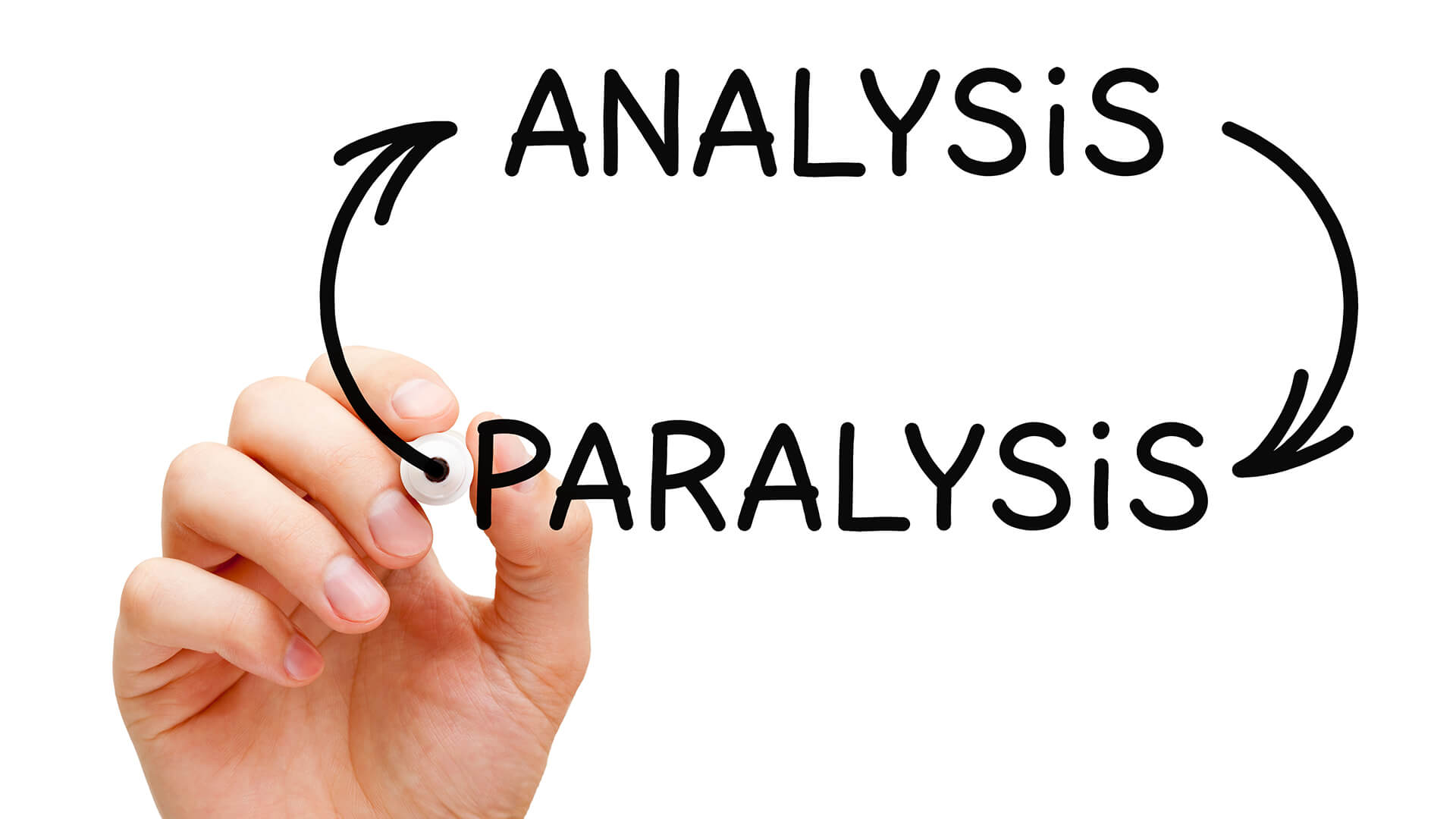Keeping Analysis Paralysis from Interfering with Productivity and Performance
Analysis paralysis is over-analyzing or overthinking an action to the point of taking no action at all. You simply can’t make a decision, so you get stuck. Does this sound like you? Perhaps you’re a business leader or manager responsible for dozens of daily decisions. If you get stuck when evaluating ideas or information, you might have analysis paralysis.
Decisions, Decisions
Business leaders are tasked with making the most important decisions on behalf of a company. From approving a personalized direct mail template to finalizing a buyout offer, business leaders are under pressure to call the shots that pay the bills and make the money. While being a leader is all about making decisions, doing so day in and day out becomes exhausting.
You might feel mentally drained, stressed, or burned out. You spend valuable mental resources even when making simple decisions. The pressure is amplified when you’re making business decisions. So if you spend hours agonizing over one decision, it leads to mental exhaustion and inaction.
The good news is you can overcome and prevent analysis paralysis from taking a bite out of your bottom line The following seven tips will help you avoid paralysis analysis.
1. Set a Reasonable Deadline
Deadlines are efficient. When facing a deadline, you’re forced to make a faster decision. The hard part is sticking to a self-imposed deadline. Make yourself accountable by sharing the deadline with friends, family, or coworkers. When other people know the deadline, you’ll find it harder to ignore.
2. Start the Day with Important Business Decisions
You face several business decisions during your day – but some are more important than others. Deciding what to do on your break isn’t quite as pressing as deciding who gets the office promotion. You’re generally mentally fresh at the start of your day, so this is the best time to make tough decisions.
3. Consider Fewer Options
It’s wise to consider important details when making a decision. But too many details can lead to information overload. And information overload often leads directly to analysis paralysis. Set a limit to the amount of information you need to make a decision.
4. Discuss the Decision
Getting a second opinion can make a big difference in decision-making. If you’re completely stuck, take the pressure off of yourself by asking for help. Talk it out with a coworker, friend, or family member.
Explaining the situation to another person can also help you clarify your thoughts. Some people find it helps them think better when discussing what’s on their minds. And the other person can possibly bring errors in judgment to your attention. That alone is possibly enough to push you into action.
5. Identify Your Main Goal
It helps to have a goal in mind when facing a tough decision. A clearly defined objective or goal will let you know precisely what you need to accomplish. Identify the most important thing on which to focus.
For example, say you’re trying to decide between three direct mail campaigns. What do you want the campaign to achieve? Answer the question before you start reviewing the campaigns. Then choose the option that best represents your main goal.
6. Avoid Perfectionism
There’s nothing wrong with wanting to make a wise decision. But settling for nothing less than perfection can lead to analysis paralysis. Striving for perfection sometimes turns into a trap that leaves you stuck.
Remember, you can get average results even from what you consider the most perfect decision you’ve ever made. Take the pressure off of yourself. Aim for the best choice that you can make – don’t worry about it being a perfect choice.
7. Take a Break
When you’re tired or overwhelmed, ruminating on your decision makes it worse. If time permits, give your mind a rest. Take some time away from your decision-making and find an enjoyable distraction.
What do you enjoy? You might take a walk, go for a jog, meditate, or practice yoga. Whatever it is you do for relaxation will give your mind a rest. Return to your decision-making after you’re refreshed and relaxed.
Defeat Analysis Paralysis
It’s wise to think through options before making a decision. But if you’re trapped in a web of indecision, it likely means you’ve fallen into analysis paralysis. The strategies mentioned here can help when you’re stuck in the decision-making process.

Stay updated with our latest publications.
Discover Issues
See how we can help you grow in the online space!
Advertise With Us
We can help promote your business.
Find Out More




